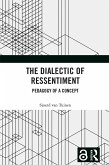Ressentiment-the hateful desire for revenge-plays a pivotal role in Nietzsche's
On the Genealogy of Morals.
Ressentiment explains the formation of bad conscience, guilt, asceticism, and, most importantly, it motivates the "slave revolt" that gives rise to Western morality's values.
Ressentiment, however, has not enjoyed a thorough treatment in the secondary literature. This book brings it sharply into focus and provides the first detailed examination of Nietzsche's psychology of
ressentiment. Unlike other books on the
Genealogy, it uses
ressentiment as a key to the
Genealogy and focuses on the intriguing relationship between
ressentiment and justice. It shows how
ressentiment, despite its blindness to justice, gives rise to moral justice-the central target of Nietzsche's critique. This critique notwithstanding, the
Genealogy shows Nietzsche's enduring commitment to the virtue of
non-moral justice: a commitment that grounds his provocative view that moral justice spells the 'end of justice'. The result provides a novel view of Nietzsche's moral psychology in the
Genealogy, his critique of morality, and his views on justice.
Dieser Download kann aus rechtlichen Gründen nur mit Rechnungsadresse in A, B, BG, CY, CZ, D, DK, EW, E, FIN, F, GR, HR, H, IRL, I, LT, L, LR, M, NL, PL, P, R, S, SLO, SK ausgeliefert werden.









